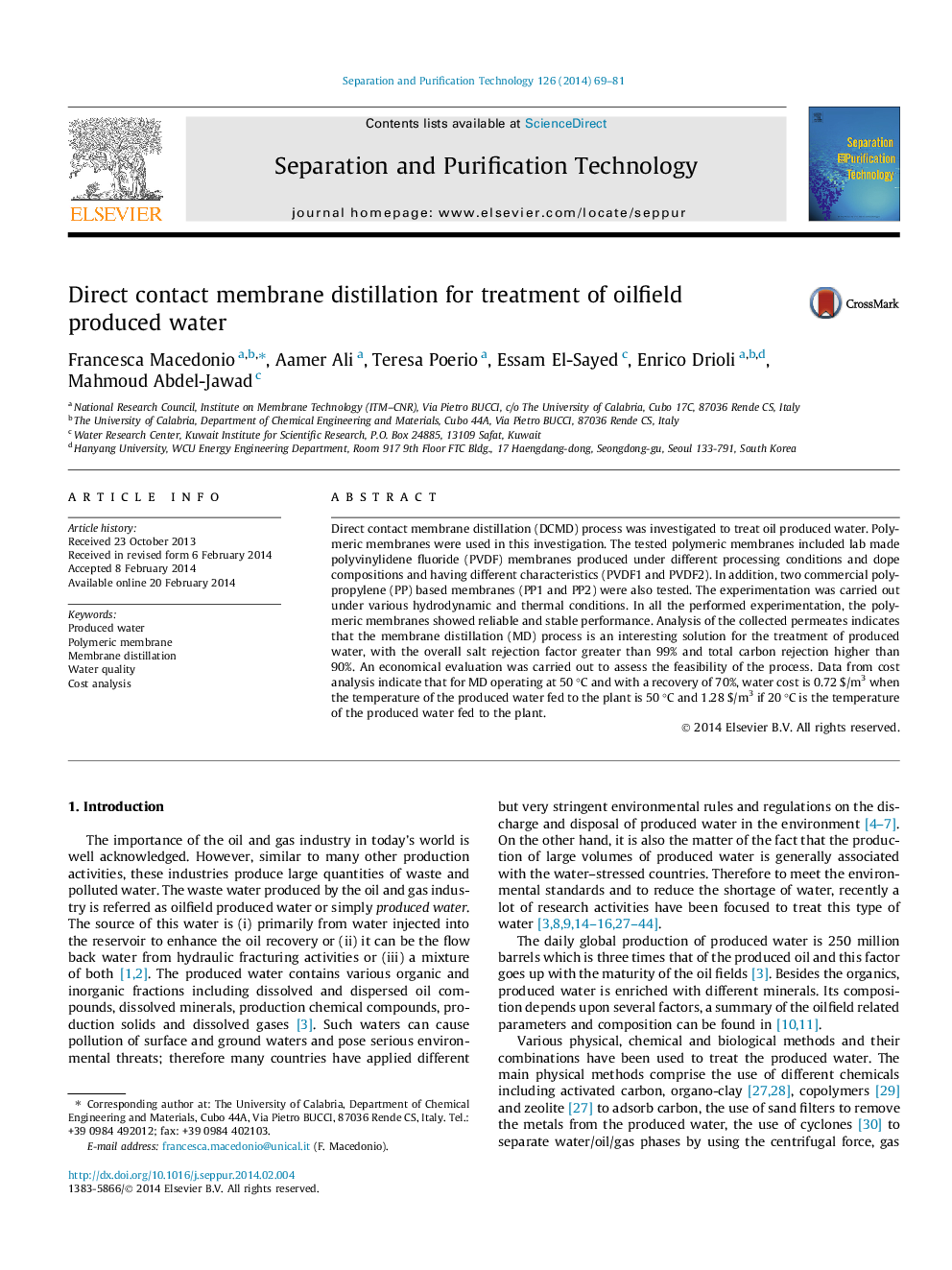| Article ID | Journal | Published Year | Pages | File Type |
|---|---|---|---|---|
| 641411 | Separation and Purification Technology | 2014 | 13 Pages |
•Direct contact membrane distillation DCMD was investigated to treat produced water.•Different polymeric membranes were used and their performance compared.•The overall salt rejection factor was found greater than 99%.•The total carbon rejection was found higher than 90%.•An economical evaluation was carried out to assess the feasibility of the process.
Direct contact membrane distillation (DCMD) process was investigated to treat oil produced water. Polymeric membranes were used in this investigation. The tested polymeric membranes included lab made polyvinylidene fluoride (PVDF) membranes produced under different processing conditions and dope compositions and having different characteristics (PVDF1 and PVDF2). In addition, two commercial polypropylene (PP) based membranes (PP1 and PP2) were also tested. The experimentation was carried out under various hydrodynamic and thermal conditions. In all the performed experimentation, the polymeric membranes showed reliable and stable performance. Analysis of the collected permeates indicates that the membrane distillation (MD) process is an interesting solution for the treatment of produced water, with the overall salt rejection factor greater than 99% and total carbon rejection higher than 90%. An economical evaluation was carried out to assess the feasibility of the process. Data from cost analysis indicate that for MD operating at 50 °C and with a recovery of 70%, water cost is 0.72 $/m3 when the temperature of the produced water fed to the plant is 50 °C and 1.28 $/m3 if 20 °C is the temperature of the produced water fed to the plant.
